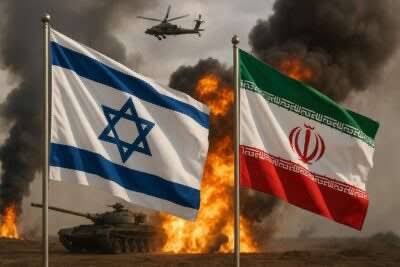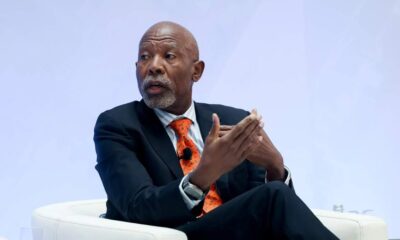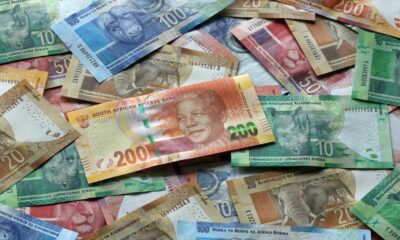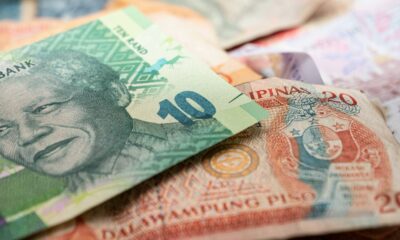Business
Middle East Conflict Throws a Curveball at South Africa’s Rate Cut Plans

Oil shocks from escalating Israel-Iran tensions could derail SARB’s next move on interest rates
Just weeks ago, South African households had a reason to breathe a little easier. The Reserve Bank finally shaved 25 basis points off its repo rate, nudging it down to 7.25% the first cut in what many hoped would be a string of relief measures in 2025.
But global geopolitics had other plans.
Now, with Brent crude oil prices suddenly spiking thanks to renewed conflict in the Middle East, that long-awaited July interest rate cut might not happen after all.
From Rate Relief to Risk Watch
The South African Reserve Bank (SARB) had begun sounding a cautiously optimistic note in May. Inflation had cooled to just 2.8%, well below its 3–6% target band, thanks to a stronger rand, cheaper oil, and a dip in global price pressures.
It was enough to convince the monetary policy committee to move forward with the long-anticipated easing cycle.
But that optimism may be short-lived.
Brent crude surged up to $78 per barrel last Friday, a three-month high before settling around $75 this week. The sudden surge came after Israel launched a significant airstrike on Iranian nuclear and gas infrastructure, drawing global attention back to the Strait of Hormuz, the world’s most sensitive oil transit chokepoint.
In a region that moves nearly 20% of the world’s oil supply daily, even the threat of conflict is enough to spook markets and that’s exactly what’s happening now.
The Global Domino Effect
TreasuryONE’s Wichard Cilliers put it bluntly: “This erased all year-to-date oil losses and reawakened fears about energy security.”
The International Energy Agency has already signalled that it may step in with emergency stockpiles if needed. But oil prices are notoriously quick to react and much slower to stabilise.
What matters for South Africa is how long this spike lingers. Because if oil continues to rise, it will likely feed directly into fuel and transport costs, pushing inflation back up and interest rate cuts off the table.
Could Oil Hit $100 Again?
Nigel Green of deVere Group doesn’t rule it out.
He warns that this isn’t just another flare-up in a region known for instability. The latest airstrikes have gone beyond proxy warfare, with Israel now directly targeting Iranian facilities. That marks a dangerous shift and opens up the real risk of broader state-on-state conflict.
“If we see any serious disruption at Hormuz, oil could shoot past $100 a barrel,” Green said. “And that would kill the current disinflation story completely.”
That’s not just bad news for South Africans looking forward to cheaper credit. It would affect global markets and central banks across the board, from the Federal Reserve to the European Central Bank.
What About the Fed?
Eyes are now turning to the US Federal Reserve’s upcoming decision. While it’s expected to hold rates steady at 4.5%, markets are hoping for clues on a September cut.
Locally, Nedbank economist Busisiwe Nkonki pointed out that “Trump’s pressure on the Fed to lower rates contrasts with Powell’s cautious approach.” For now, the US looks to hold firm, waiting to see how recent tariff hikes and inflation evolve.
Other major economies, including China, the UK, Japan, and Brazil are also standing pat on their interest rates. If oil keeps climbing, they may stay that way for even longer.
South Africans Caught in the Crossfire
What does this mean for the average Mzansi resident?
It means home and car loans won’t get cheaper as soon as expected. It means grocery prices, especially for fuel and food — could climb again, just as many families were starting to recover from years of financial strain.
And it highlights how global wars and distant decisions can reach deep into South African wallets.
Social Media and Market Pulse
?️ “If oil hits R25 a litre again, forget about a rate cut. SARB will hike instead.” — @MarketMzansi
?️ “Can’t believe war in the Gulf means I’m stuck paying this bond rate for longer.” — @Thuli_Econ
?️ “Let’s hope the Reserve Bank stays calm. One oil spike isn’t inflation.” — @SiphoMacro
SARB’s Balancing Act Just Got Tougher
The SARB now finds itself in a tricky spot. Its July decision was meant to offer relief to a battered economy. But if Brent crude continues its climb — and if inflation expectations shift — that relief may have to wait.
It’s a stark reminder of just how exposed South Africa remains to global shocks. And how fast the best-laid monetary plans can unravel in the face of war.
Key Takeaways:
-
SARB recently cut interest rates to 7.25%, with hopes of further cuts in July
-
Brent crude oil surged to over $78 a barrel following Israel-Iran escalation
-
Inflation could rise again if fuel prices climb, pausing rate cut momentum
-
Strait of Hormuz disruption remains the biggest wildcard for global oil supply
-
Public sentiment shows concern that the Reserve Bank may hold off easing
{Source: African News Agency}
Follow Joburg ETC on Facebook, Twitter , TikTok and Instagram
For more News in Johannesburg, visit joburgetc.com



























